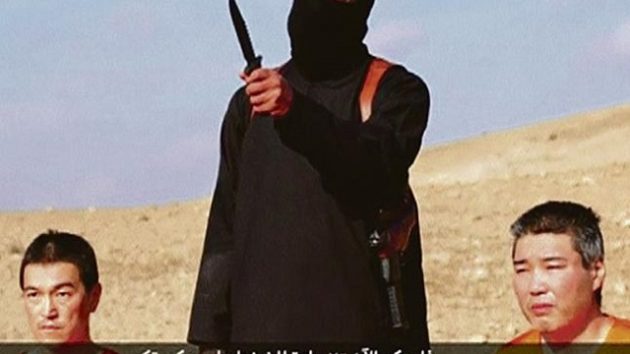Crunch-Time for the Coalition
What has Japan done? Most of us can agree that for years Western European and North American democracies have received a considerable degree of criticism – and applied a considerable degree of self-criticism – based on our recent and far-distant historical actions. In Britain and France the carving up of the Ottoman empire keeps coming back to us. In America its post-World War II engagement in the Middle East has been the focus.
But as Islamic State (IS) paraded its two Japanese hostages on camera this week there should be some reflection on this. Since 1945 it would be hard to find a more pacific and careful nation in foreign policy, let alone expressions of national exceptionalism, than Japan. It is an important economy and an important voice in the family of nations. But if there was a country at the opposite end of the spectrum of ‘world policeman’ it would be post-World War II Japan.
And yet here this week were two of their nationals prone in precisely the same gruesome position that American and British hostages, among others, have found themselves in recent months. This time it was their government having demands made of them and their leaders receiving the disorientating IS mixture of medievalist behaviour communicated via the most up-to-date technology.
As foreign ministers met in London to discuss how to deal with the IS threat this is a question worth mulling on. In the West we have media organisations and universities packed with people who wish to mull on our own foreign policy mistakes before mulling what to do about actual visible threats. A degree of self-criticism is of course a vital thing, and something which has distinguished our societies for centuries. Yet there is a time when such self-criticism becomes self-doubt, and self-doubt becomes a bar to action even in the easiest cases.
Such is the case with IS. President Obama has famously talked of containing IS, but as more and more nations around the world come face-to-face with the barbarism of IS it is easier than ever to gather international opinion to treat IS not as a problem that should be contained but as a threat that must be eliminated. It is very rare in international affairs to be able to single out any group or any action which is genuinely an affront to the entire international order and the whole community of nations – with their competing and international horse-trading arrangements. But IS is such a threat and such a challenge and it must be hoped that the foreign ministers meeting in London recognised that and can build a proper coalition to address that fact.
RELATED ARTICLE: ISIS Says Countdown For Japan’s Hostages has Begun


